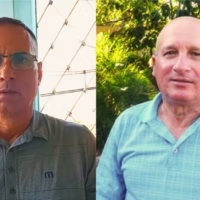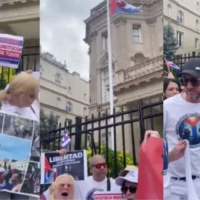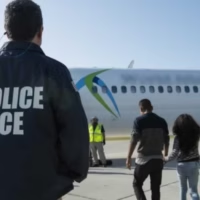Naciones Unidas para los Derechos, No para los autócratas


La Habana 1 de junio de 2020
Carta Abierta
Las Naciones Unidas para los derechos, no para los autócratas
Honorable Sra. Michelle Bachelet,
Alta Comisionada de Derechos Humanos de las Naciones Unidas
Honorable Sr. Tijjani Mohammad Bande, Presidente electo de la Asamblea General de las Naciones Unidas
Excelentísimos Sres.
Hace casi un año que más de 2.000 ciudadanas y ciudadanos, de dentro y fuera de la isla, enviamos una carta abierta, Cuba le Espera la titulamos, invitando a la Alta Comisionada de Derechos Humanos a que, como había hecho en Venezuela, nos visitara y constatara de primera mano el comportamiento de las autoridades cubanas en materia constitucional y de derechos humanos. También, para que sostuviera un diálogo vivo con representantes de la sociedad civil. Esta invitación la reiteramos.
Entonces, habían transcurrido tres meses desde que fuera aprobada la nueva Constitución, en medio del pesimismo esperanzado de unos y el pesimismo total de otros, dentro y fuera de Cuba, de que la consonancia entre la ley fundamental y el comportamiento del gobierno iba a lograrse por primera vez en nuestro país. 61 años después.
Desafortunadamente, Cuba ha pasado del pesimismo a la frustración en sus esperanzas de que el gobierno respete un orden de convivencia civilizado. Las autoridades han elegido mandar por decreto, represión y con arbitrariedad, donde se esperaba que gobernasen de acuerdo a la ley.
El núcleo de nuestra inquietud inmediata en aquella carta giraba en torno a cómo, desde la puesta en vigor de la Constitución, el gobierno debutaba violando de modo flagrante su Artículo 52, que garantiza la libertad de movimiento de la ciudadanía. Hoy, a un año y dos meses de aprobada, la Constitución es letra muerta. En lo que tiene de más fundamental para la legitimidad del contrato social. Con evidente indiscreción, el gobierno no respeta ninguno de los artículos que tienen que ver con los derechos y garantías ciudadanos.
A muchos nos preocupa y ocupa el estado de indefensión constitucional de las cubanas y los cubanos, y para superarlo trabajamos.
Pero nos preocupa también que Estados decididamente autocráticos como los de Arabia Saudita, Rusia y Cuba puedan entrar, y en el caso nuestro regresar, a un asiento en el Consejo de Derechos Humanos. Entre otras, la entrada de estos gobiernos se alinearía con la de Venezuela y la cortina expansiva de China, que ahora mismo está atacando con más fuerza las libertades civiles en Hong Kong. Gobiernos todos que vienen redactando un manual práctico global de cómo se violan los derechos humanos en nombre de los derechos humanos.
La conversión de la anterior Comisión en Consejo de Derechos Humanos en vez de fortalecer ―en una época de eclosión de los derechos, de la autoconciencia y del autoreconocimento ciudadanos―, solo ha debilitado la narrativa y el respeto de estos a escala global. Ha fortalecido inadvertidamente a los gobiernos autoritarios y posibilitado la captura de la Carta Internacional de Derechos Humanos, junto a su institucionalidad global, por un club de Estados depredadores de derechos. Y nosotros creemos firmemente que las Naciones Unidas de hoy deben ser para los derechos, no para los autócratas.
Reformar los criterios y mecanismos electivos para formar parte del Consejo de Derechos Humanos está resultando un imperativo. No puede ser que gobiernos que, como el cubano, se niegan a ratificar los Pactos de Derechos Civiles y Políticos; Económicos, Sociales y Culturales, puedan optar mecánica y temporalmente por un asiento en un tribunal que analiza y juzga la ejemplaridad en el comportamiento de los derechos humanos en todas las naciones.
No puede ser que a la sociedad civil y a la ciudadanía de los respectivos países se las siga ignorando y negando sus voces, a la hora de elegir a los Estados que institucionalmente le representan en dicho Consejo.
Y no puede ser que gobiernos que eligen quebrar su propia arquitectura constitucional puedan optar en principio para ser elegidos en órganos internacionales que promueven, respaldan y protegen todos los derechos para todas las personas.
El gobierno cubano ya ha hecho su elección. Un Estado social fallido ha decidido desatar una guerra civil legal contra la sociedad, imponiendo decretos que limitan la libre creación artística y de bienes y servicios desde la sociedad civil, que atacan las libertades de expresión, de reunión, de asociación y de manifestación, y que sancionan el ejercicio de ciertos derechos civiles y políticos reconocidos en la Constitución.
Nosotros, los abajo firmantes, ciudadanas y ciudadanos, de dentro y fuera de Cuba, hemos hecho también nuestra elección.
1. Demandar que tanto la Asamblea General como la Oficina de la Alta Comisionada para los Derechos Humanos de las Naciones Unidas reclamen públicamente del gobierno cubano el respeto íntegro al orden constitucional vigente, limitado como es, y la ratificación de los pactos internacionales de derechos reconocidos por esta institución global.
2. Pedir a los distintos bloques de países que votan para elegir a los miembros del Consejo de Derechos Humanos que abran en su caso, o fortalezcan en los suyos, la comunicación con organizaciones de la sociedad civil cubana dedicadas a temas de derechos humanos o constitucionales.
3. Pedir a la sociedad civil internacional y a organizaciones regionales y nacionales sensibilizadas con los derechos humanos que respalden y apoyen los esfuerzos de la sociedad civil cubana para potenciar su voz de conjunto en órganos decisorios de las Naciones Unidas.
Los autoritarismos vienen tejiendo, con relativo éxito, su coalición global contra los derechos en el seno mismo de las organizaciones de derechos humanos. Intentan reforzarla ahora, aun cuando no han sido los más eficaces frente a la Covid 19, suprimiendo derechos y tratando de legitimar un Leviatán sanitario.
Y si el gobierno de Cuba, pieza clave regional de esta coalición autoritaria, resulta una vez más electo al Consejo de Derechos Humanos, lo estaría siendo contra las aspiraciones mayoritarias de la ciudadanía cubana, y en representación técnica del Estado pero conceptual del partido único.
Firmantes de Carta Abierta a Oficina de Alta Comisionada de Derechos Humanos y a la Asamblea General de las Naciones Unidas
Havana, June 1st, 2020
Open letter
The United Nations for rights, not for autocrats
To the honorable Michelle Bachelet,
High Commissioner for Human Rights at the United Nations
To the honorable Tijjani Muhammad-Bande, President elect of the United Nations General Assembly
Excellencies,
Almost a year ago, more than 2,000 citizens, from both inside and outside the island, sent an open letter, entitled “Cuba awaits you”, to the High Commissioner for Human Rights. In that letter, we invited her to visit us, as she had done Venezuela, and to ascertain the behavior of the Cuban authorities in constitutional and human rights matters first-hand, as well as to continue a lively dialogue with representatives of civil society. We would like to reiterate this invitation.
Back then, three months had passed since the new Constitution had been approved amidst an atmosphere of hopeful pessimism of some and total pessimism of others, inside and outside Cuba, that the government’s behavior would be in conformity with the Basic Law for the first time in our country. 61 years after the Cuban Revolution.
Unfortunately, Cuba’s pessimism turned into frustration regarding its hopes that the government would respect a civilized order of coexistence. The authorities have chosen to rule by decree, repression and with arbitrariness, where they were expected to govern in accordance with the rule of law.
The core of our immediate concern in that letter was how, since the implementation of the Constitution, the government had started flagrantly violating its Article 52, which guarantees the citizens’ freedom of movement. Today, one year and two months after its enactment, the Constitution is a dead letter in its part and parcel to achieve legitimacy of the social contract. With evident indiscretion, the government does not respect any of the articles concerning citizens’ rights and guarantees.
Many of us are concerned about the lack of constitutional protection for Cuban women and men, and we are striving to overcome it.
However, we are also concerned that decidedly autocratic states such as Saudi Arabia, Russia and Cuba may enter, and in our case return to, a seat on the Human Rights Council. Among others, the entry of these governments would be aligned with that of Venezuela and with China’s steady expansion, a state which is now attacking civil liberties in Hong Kong with increasing force. All these governments have been drafting a global practical handbook on how to violate human rights in the name of human rights.
The conversion of the previous Commission into the Human Rights Council could have strengthened its mission and contributed to an era of thriving citizens’ rights, their self-awareness and self-recognition. Instead, it only led to the weakened narrative and respect for human rights on a global scale. Moreover, it has inadvertently strengthened authoritarian regimes and therefore made it possible for the International Charter of Human Rights to be controlled, alongside with its global institutionality, by a club of rights-predatory states. We, on the other hand, firmly believe that today’s United Nations must be for rights, not for autocrats.
That is why reforming the criteria and elective mechanisms for the membership of the Human Rights Council is proving to be imperative. It cannot be that governments, like Cuba’s, that refuse to ratify the International Covenants on Civil and Political Rights and on Economic, Social and Cultural Rights, are, without further examination, permitted to opt for a seat on a tribunal that analyzes and judges exemplary behavior regarding human rights within all nations.
It cannot be that the voices of the citizens and civil societies of the respective countries continue to be ignored and neglected when it comes to electing the States, which institutionally represent them, to this Council.
Also, it cannot be that governments that choose to break their own constitutional architecture are, in principle, allowed to opt to be elected to international bodies that promote, support, and protect all rights for all people.
The Cuban government has already made its choice. A failed social state has decided to unleash a legal civil war against its society, imposing decrees that constrain the free creation of art, and of goods and services by the civil society, that attack the freedoms of expression, assembly, association and demonstration, and that sanction the practice of certain civil and political rights as recognized by the Constitution.
We, the undersigned, citizens inside and outside of Cuba, have also made our choice.
1. To demand that both the General Assembly and the Office of the United Nations High Commissioner for Human Rights publicly demand that the Cuban government fully respect the existing constitutional order, limited as it is, and ratify the international covenants on rights as recognized by this global institution.
2. To ask the different blocs of countries that vote to elect members of the Human Rights Council to initiate, if necessary, or to strengthen communication with Cuban civil society organizations dedicated to matters of human or constitutional rights.
3. To ask international civil society as well as regional and national organizations, that are sensitized to human rights, to endorse and support the efforts of Cuban civil society to strengthen its collective voice in the United Nations decision-making bodies.
Authoritarianisms have been creating, with relative success, their global coalition against rights within the very heart of human rights organizations. They are trying to strengthen it now, even though they have not been the most effective against Covid-19, by suppressing rights and trying to legitimize a Leviathan of public health.
And if the government of Cuba, a key regional player in this authoritarian coalition, is once again elected to the Human Rights Council, it would be so in spite of the aspirations of a majority of Cuban citizens, technically representing the State but conceptually representing the single party.
Open Letter Signatories, to the Office of the High Commissioner for Human Rights and the United Nations General Assembly




More Stories
Vicente Feliú: “un revolucionario provocado puede ser muy peligroso”
Camila Acosta, de la estación policial al arresto domiciliario
Régimen multa a un vendedor ambulante con discapacidad por tomar un descanso